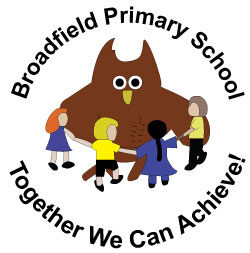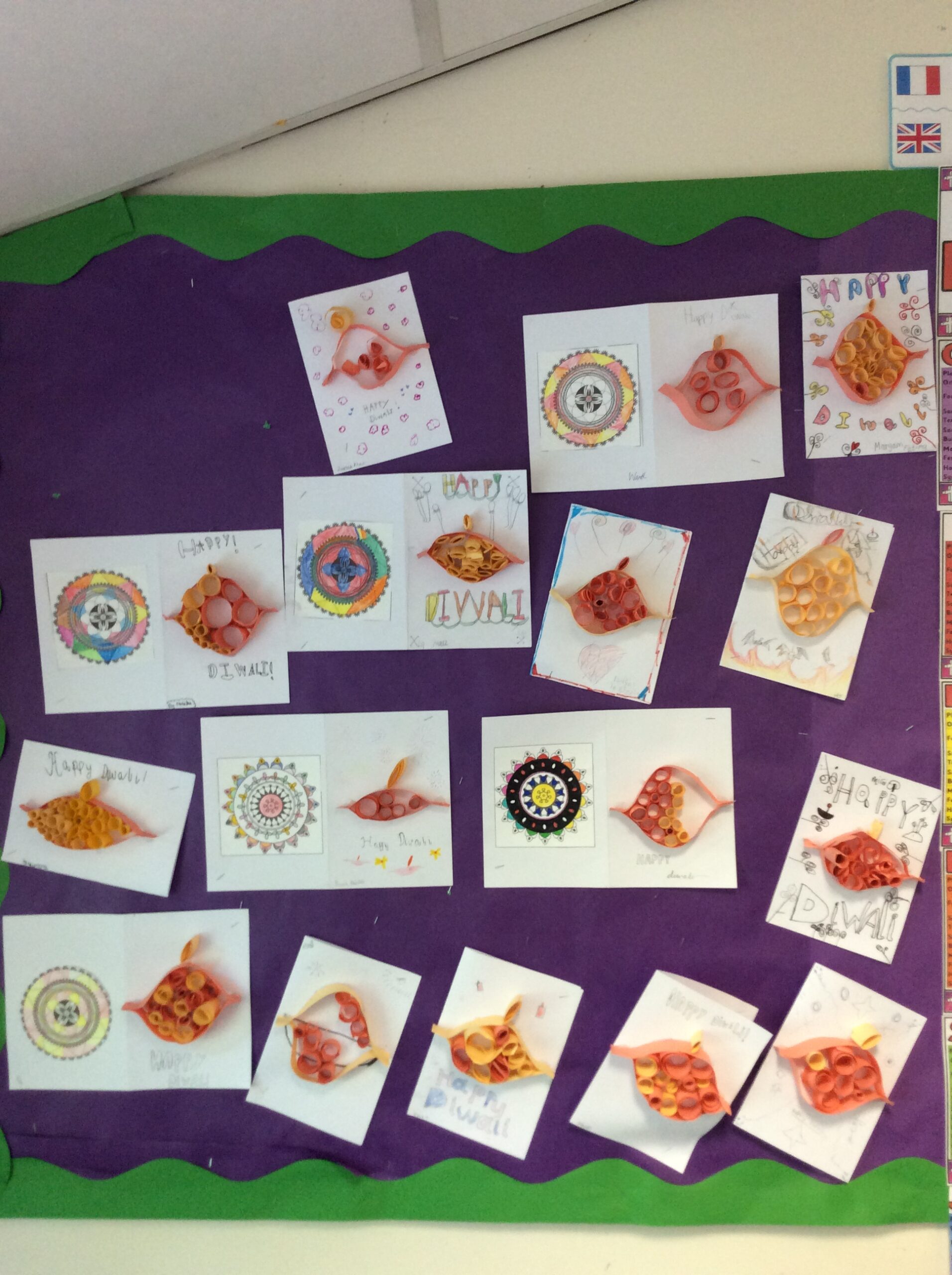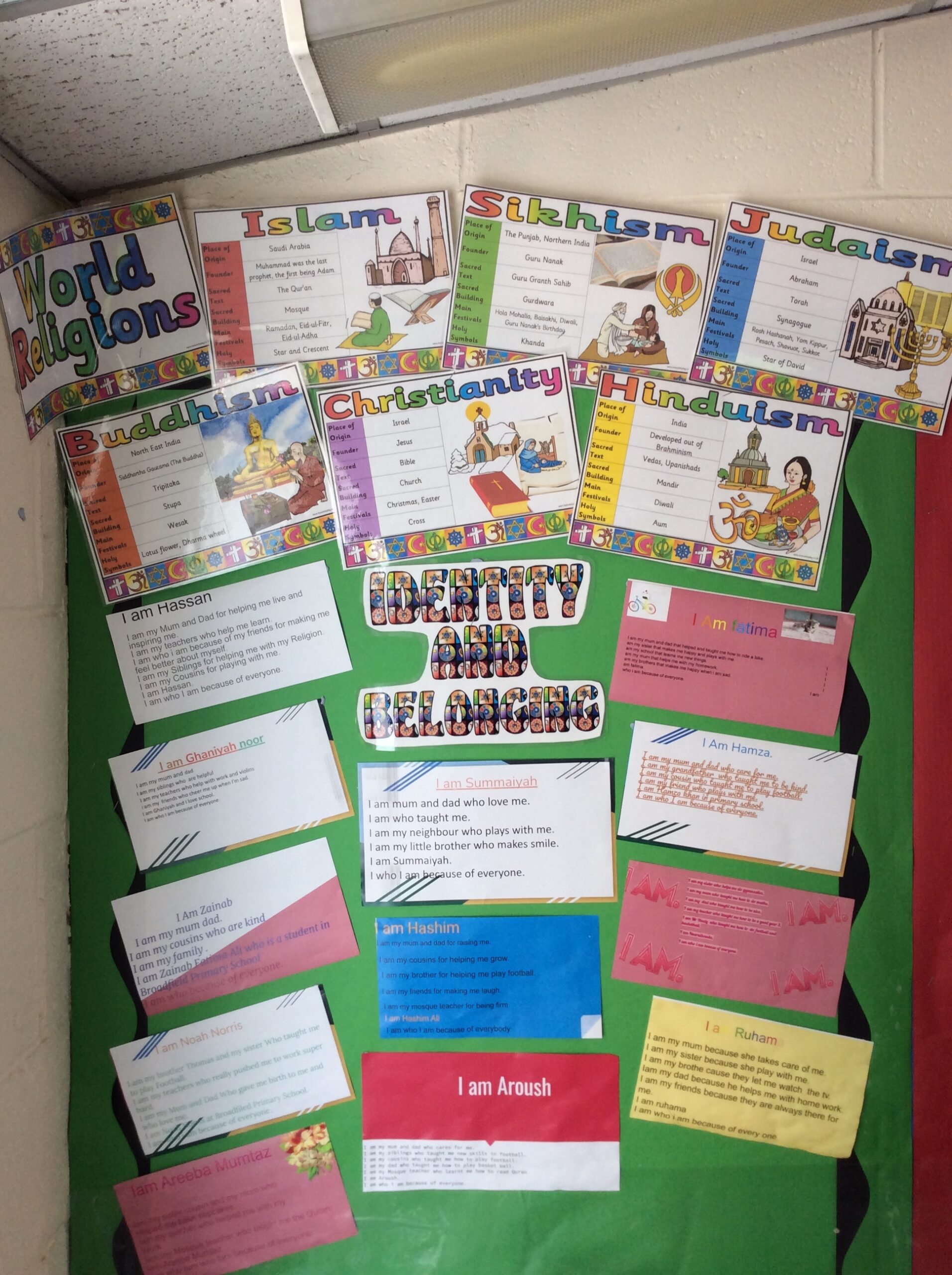Click here to view the overview fo R.E. 2024-2026
Intent
Our intent is to provide opportunities for children to develop as confidently, articulate and well-rounded children who can succeed as individuals and contribute to their community and the wider world.
SMSC
The teaching of Religious Education is essential for the development of pupils’ spiritual, moral, social and cultural development.
At Broadfield our RE curriculum links directly with our schools’ aims.
To encourage respect and tolerance for other races and religious beliefs, values and opinions through developing an understanding of the principal religions including those represented in our school, in our local area and in the wider community.
To encourage in each child a sense of positive worth and self-respect through time for personal reflection of their beliefs and values developing their identity and sense of belonging.
To enable children to become confident, responsible and caring members of the community by supporting children to develop respect for others and in particular those whose faiths are different from their own.
In the above ways we aim to prepare children to take part in a global community based on mutual respect.
RE and British Values.
RE links closely to the British Values of mutual tolerance, respectful attitudes, democracy, the rule of law, and individual liberty.
Implementation
At Broadfield Primary School we follow the Oldham Agreed Syllabus for Religious Education. In Reception and KS1 RE is taught for 36 hours per year. This equates to 50 minutes a week.
In KS2 RE is taught for 45 hours per year. Which equates to 60 minutes per week
RE is taught discreetly, either as a session per week or as a series of RE days.
The world faiths children study over their time at Broadfield are:
Christianity,
Islam,
Buddhism,
Hinduism
Sikhism
Judaism
We follow a 2-year curriculum cycle due to being a 1.5 form entry school.
In the EYFS (Early Years Foundation Stage), a topic based approach is used e.g. In Reception within the topic of Marvellous Me!
We will discuss and learn about which people are special and why? This will include work on Jesus’s special friends.
In Key stage 1 children study Christianity and Islam with an introduction to Sikhism and Hinduism on alternate years.
This ensures by the end of Key Stage 1 all children have been introduced to the above religions and this knowledge can be built upon in Key Stage 2.
Children will also visit a church and a temple over the key stage.
In Lower Key Stage 2 children continue to study Christianity and Islam. They then develop further their knowledge of Hinduism and Sikhism and begin to learn about Judaism and Buddhism.
In Upper Key Stage 2 Children build upon prior knowledge from previous years and study Christianity, Islam Buddhism Sikhism and Judaism.
Over the Key Stage children will visit a Mosque, a Synagogue and a Cathedral.
Within their studies children have the opportunities:
To develop their knowledge and facts about the religions studied.
To learn about how each religion is a living religion and how it affects people’s daily lives.
To discuss their ideas and how the religions are similar / different.
To reflect on how the principles of each religion link with their own ideas and beliefs.
To grow spiritually and morally through having the opportunity to discuss their own thoughts, ideas and concerns.
Assessment
By the end of each key stage, pupils are expected to know, understand and apply skills related to the statutory end of stage outcomes as set out in the Agreed Oldham Syllabus to enable teachers to assess the progress of the children as they move through the key stages.
These outcomes are split into 3 teaching elements
Element 1: Making sense of beliefs
Element 2: Understanding the impact.
Element 3: Making connections
Termly summative assessments linked to lesson content are used to determine the children’s’ understanding and inform teacher’s planning and further differentiated support for pupils. These are recorded in an assessment booklet.
Impact
The impact our RE curriculum is sought directly from the pupils in pupil interviews and book scrutinies. This enables the co-ordinator to gather pupils’ voice to ensure that their work, skills and knowledge reflects the intent. Together with information gained from assessment, action can be taken to further develop the RE curriculum.


